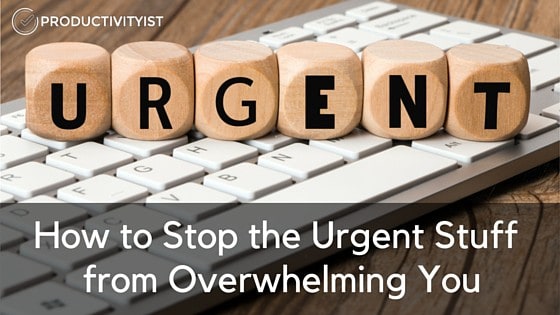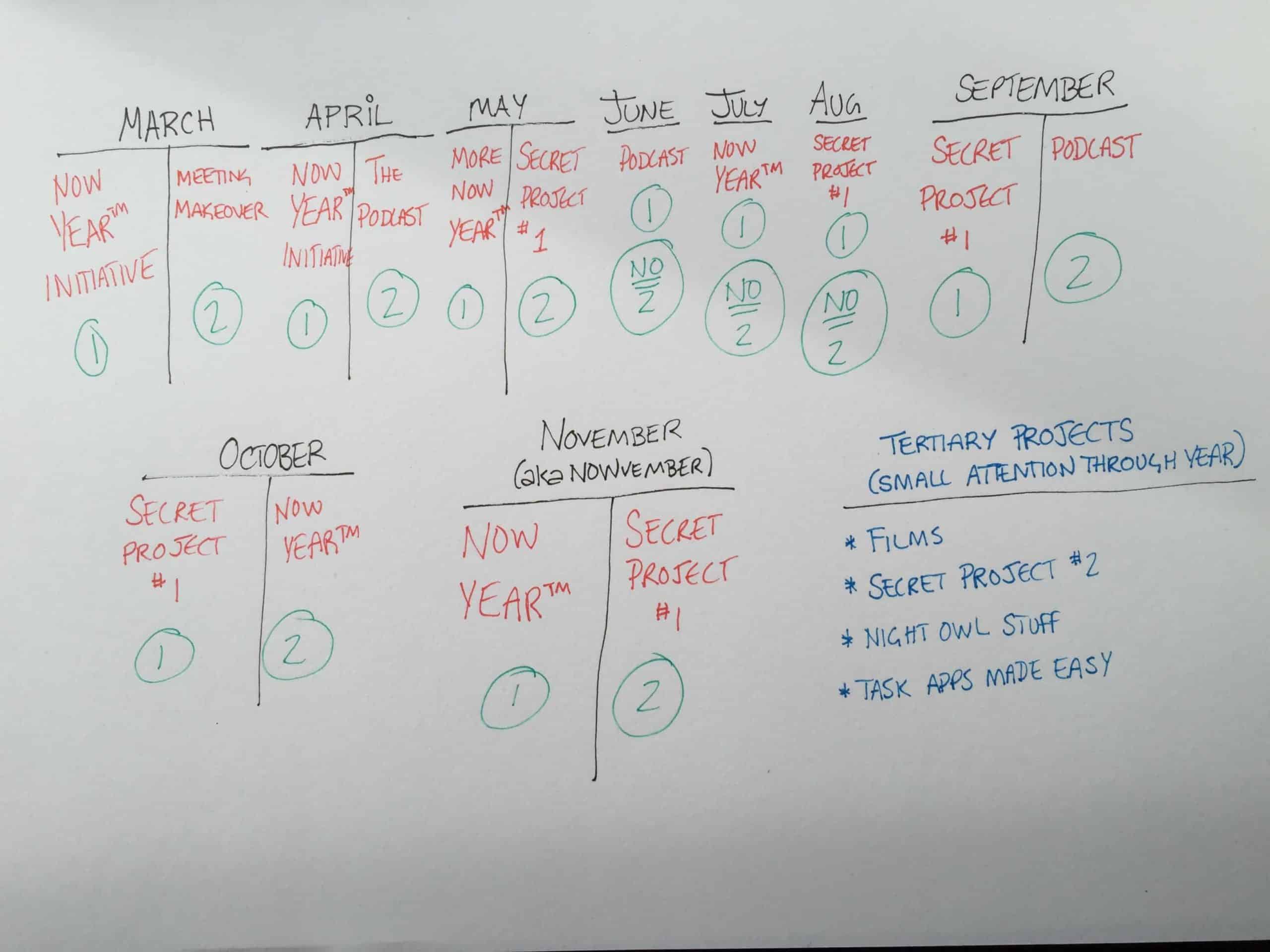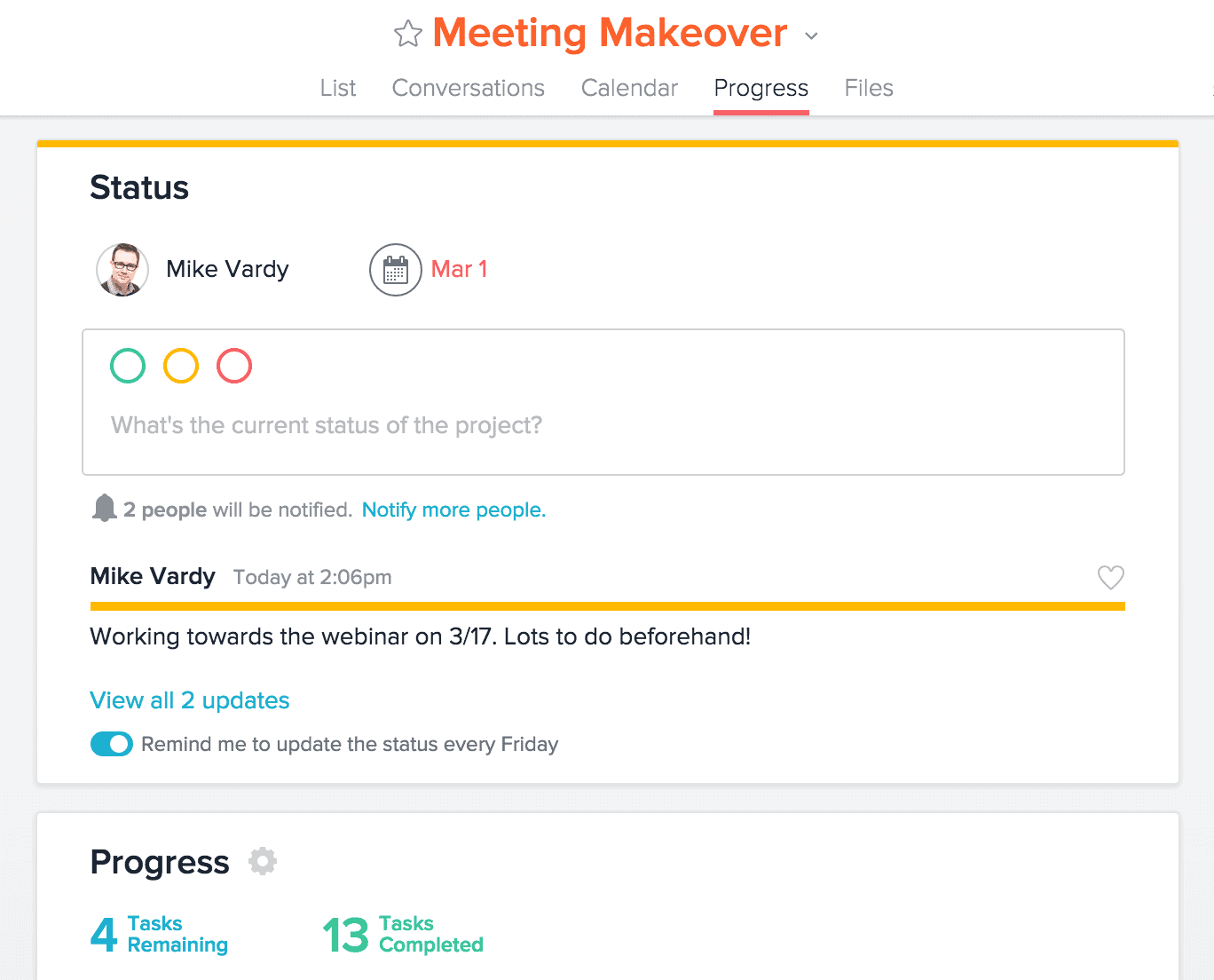
“We learn from our gardens to deal with the most urgent question of the time: How much is enough?” – Wendell Berry
Thirty-two.
That’s the number of active projects I have right now. And some of them are mega-projects. Things like Productivityist Films and other newer initiatives that I want to have see the light of day and the ongoing projects of The Productivityist Podcast and Productivityist Coaching. These are big undertakings and every day the creep of less than measurable progress has the chance of haunting me.
Up until recently, this feeling haunted me more than I’d care to admit.
It seemed as if everything on my to do list and in my calendar was shifting from important to urgent and important before I could get my head wrapped around what was on my plate.
That was when I decided I had to do something about the urgency that was invading my life. It wasn’t just haunting me anymore. It was now overwhelming me.
So here’s what I did.
1. I slowed down.
When overwhelm sets in, the likelihood of burnout isn’t too far behind. When that happens, people come to a full stop. They get sick. They crash. They only work on the small things and spend little to no time in what Cal Newport calls “deep work.” I knew I couldn’t afford to stop, so I just slowed down. Slowing down afforded me the time to think about my list, my calendar, and My Three Words.
That’s when I was able to move on to the next step.
2. I got real.
I took every project and analyzed it, reviewing arbitrary dates I’d placed on tasks and ensuring that the projects aligned with My Three Words (all of them did, which isn’t a bad thing). Then I decided to make real decisions on implementation and execution of these projects.
I grabbed some dry erase markers and wrote down the months of the year until November on my ThoughtTop board that is on my office window sill. Then I duplicated what I did onto my whiteboard as seen below.

You’ll note that some of the projects aren’t named here because they aren’t ready to be released yet, but you get the picture. Each month has a primary and secondary project. So on my The NOW Year™ Calendar the monthly themes and primary projects are featured clearly on my wall. The secondary projects are featured in Asana, where I’ve given them project dates that align with the first of the month in question.
For example, the Meeting Makeover project has a date of March 1 in Asana and it will remain “overdue” until the month ends. This allow it to stand out among the rest of the projects and since I know that the date doesn’t mean it’s overdue, I’m fine with it displaying itself that way.
The final step, however, was the trickiest for me to do.
3. Less Yes, More No
I still have thirty-two active projects, but they are all in a state of various activity. And I can tell you that I won’t be adding any more projects to the mix anytime soon. That’s because I am being ruthless with the word “no” from now on.
I’ve even gone back and said “no” to things I committed to, which is a bitter pill to swallow. I was set to work on an unofficial guide to Todoist, but after assessing everything I needed and wanted to work on, it just didn’t fit. So I emailed the publisher and apologetically told them I wasn’t going to do the book. (I did suggest other people who may be in a better position to do the book at the same time. I believe it is important to offer possible solutions when you’re stepping away from something you’ve committed to doing.)
The idea of working on Do Better with Asana no longer appeals to me, so this project has been given to someone who can do it much better. As I’ve written about what I’m willing to do and not willing to do, I’ve found focus. I’ve even created a “Now” page for myself and Productivityist has one too so that we can stay focused on the important things we want to do.
As my friend Patrick Rhone says, “Saying no is saying yes to other things.”
The type of garden I want to grow is small because I don’t want to go big and then do things in a mediocre way. I want to have the right mix of work in my life that makes me feel joy more often than not. There’s no doubt that urgent stuff will come up. I want to be able to deal with it swiftly and then move back to the important stuff. The more you’ve got going on, the more likely it is that urgency will rear its ugly head and cast aside what’s important in the process.
So the next time you feel as if things are coming at you faster than you can handle, just slow down. Get real. Cut out what you can from the mix. Then make sure you don’t add anything back into the mix until you’ve tended to what’s already there. Otherwise you’ll wind up with a garden where the weeds overwhelm the seeds want to (and need to) grow.


